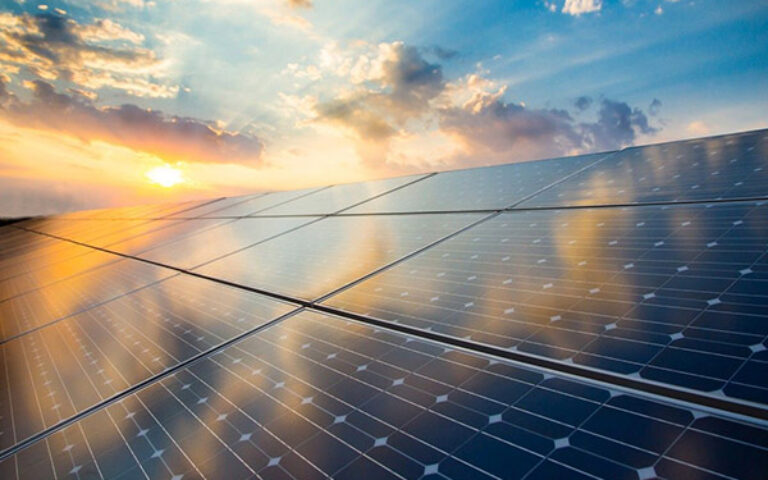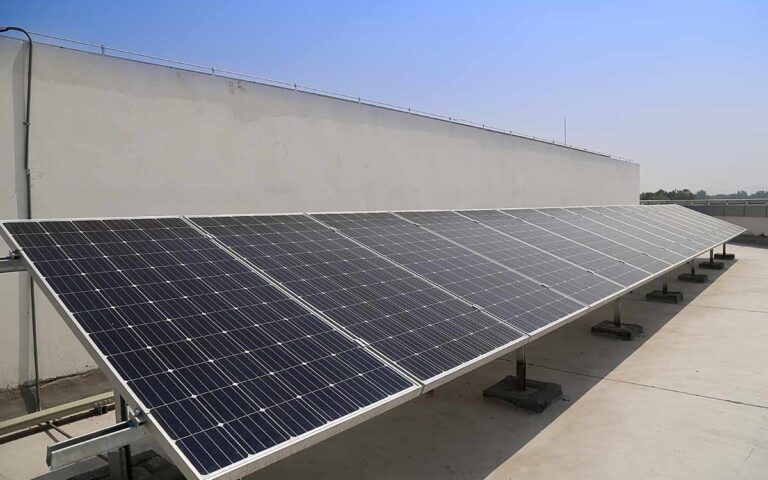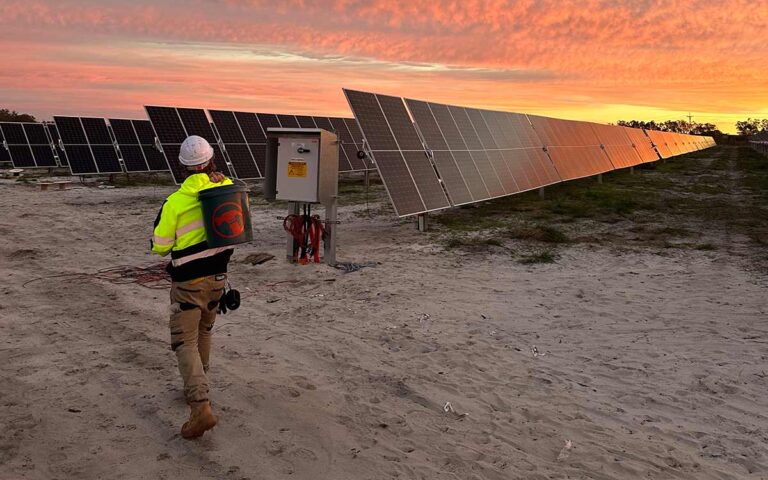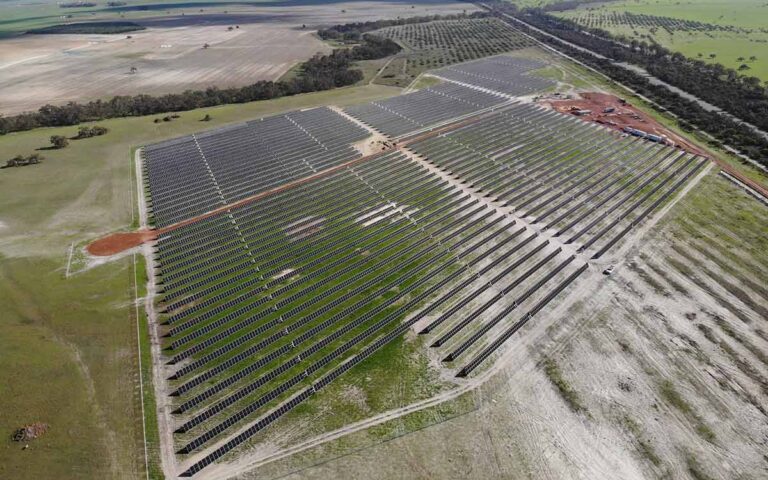Page Highlights
- Discover the Small-scale Renewable Energy Scheme (SRES) and WA’s Cheaper Home Batteries Program
- Learn how commercial solar rebates can reduce costs for your business
- Explore current solar panel and battery incentives at both federal and state levels
- FAQs covering eligibility, rebate amounts, and how to claim your benefit
Why Now Is the Ideal Time for WA Businesses to Invest in Solar
As energy prices rise and sustainability becomes a business imperative; solar power continues to be a smart investment for small businesses in Western Australia. Fortunately, there are several solar rebates and incentives available to ease the upfront costs of solar panels and battery storage systems.
In this post, we break down the major government initiatives that support solar uptake in WA, including the federal Small-scale Renewable Energy Scheme (SRES) and newly announced Cheaper Home Batteries Program which comes into effect 1 July 2025.
We’ll also answer common questions about solar battery rebates WA businesses are eligible for in 2025.
Small-scale Renewable Energy Scheme (SRES)
What is SRES?
As a trusted name in commercial solar installations across Western Australia, Westsun Energy works closely with business owners, project managers, and facility operators to develop customised solar solutions. Our systems are engineered to suit your unique energy demands and are backed by premium components, detailed monitoring, and professional aftercare.
The Small-scale Renewable Energy Scheme is a federal program that provides financial incentives for eligible solar PV systems, wind turbines, hydro systems, and solar water heaters. For solar installations, the benefit comes in the form of Small-scale Technology Certificates (STCs), which represent the clean energy your system is expected to produce.
Under SRES, small businesses can effectively receive a point-of-sale discount when purchasing an eligible system from an accredited provider. This incentive can reduce the system cost by thousands of dollars, depending on:
- System size (up to 100 kW)
- Installation date
- Location (zones with higher sunlight hours generate more STCs)
How Westsun Makes It Easy
As a CEC-accredited provider, Westsun simplifies the process of claiming your SRES rebate by applying the STC discount at the point of sale. This can shave thousands off the total cost, depending on your system’s size and location.
We take care of all the admin, ensuring you get the maximum rebate you’re entitled to, without the stress.
The Cheaper Home Batteries Program
What is it and does it extend to business owners?
Launching on 1 July 2025, the Australian Government’s $2.3 billion Cheaper Home Batteries Program extends the SRES to include battery systems up to 100 kWh capacity. As a small business you can claim a 30% upfront discount (circa $372 per kWh for 2025) on the first 50 kWh of usable battery capacity.
Eligibility criteria:
- Install a CEC-approved, VPP-capable battery
- Use a Solar Accreditation Australia (SAA) accredited installer
- Battery size: 5–100 kWh, with rebate applied per usable kWh
WA State Top-up
WA adds its own rebate via the Residential Battery Scheme, offering state funding on top of the federal rebate:
- Synergy zones: $130/kWh (up to $1,300)
- Horizon Power zones: $380/kWh (up to $3,800)
Combine these with the federal rebate to receive up to $5,000–7,500 per installation in WA

Looking Beyond Solar Rebates
While SRES and WA’s battery scheme are the major programs, businesses may also be able to benefit from:
- Instant Asset Write-Off for eligible energy-efficient assets such as solar panels, batteries, and inverters. This allows you to claim the full cost as a tax deduction in the same financial year
- State-based energy efficiency grants, which are sometimes offered by WA Government departments or industry-specific bodies to support upgrades in manufacturing, agriculture, and commercial premises
- Opportunities to join Virtual Power Plant (VPP) networks
This is a coordinated network of solar, battery, and smart energy systems that participate in the electricity market, typically earning revenue during peak demand, frequency control, and grid support events. Businesses joining a VPP can earn ongoing income, often hundreds per year by releasing stored energy back to the grid or providing services to network operators.
Maximise your Solar Rebate by reaching out to Westsun Energy Today
Our team works closely with each client to identify which of these programs they qualify for, handle the necessary applications, and design compliant systems that unlock every layer of available support.
At Westsun, our goal is to make it easy for your business to maximise savings and long-term return from your solar investment. To get started, get in touch with our team on (08) 9303 9810 or get a quote online today.
Frequently Asked Questions (FAQ)
Does WA offer rebates for solar panels or battery systems?
- Solar panels – WA doesn’t offer state-level solar panel rebates but WA businesses benefit from the federal Small-scale Renewable Energy Scheme (SRES). Under this scheme, Clean Energy Council (CEC) accredited installers like Westsun apply Small-scale Technology Certificates (STCs) as upfront savings, reducing system costs by around 20–30%.
- Batteries – For battery storage, WA businesses also have access to the federal Cheaper Home Batteries Program and the WA Residential Battery Scheme, which together can deliver up to $5,000–7,500 in savings for businesses.
Who qualifies for the WA $5,000–$7,500 battery rebate?
Businesses in Synergy postcodes can receive up to $5,000, while those in Horizon Power areas may get up to $7,500 when combining federal and state rebates
Requirements include:
- Installation on or after 1 July 2025
- Approved VPP ready battery system
- Business must be in an eligible postcode
- Battery installations require VPP enrolment
Can businesses claim Federal and WA rebates together for solar and batteries?
Absolutely. Businesses can stack the federal SRES solar rebate, the federal Cheaper Home Batteries rebate, and the state WA battery top-up rebate for combined savings. This integrated incentive model applies to both new solar battery systems and battery additions to existing solar installations. Read More










